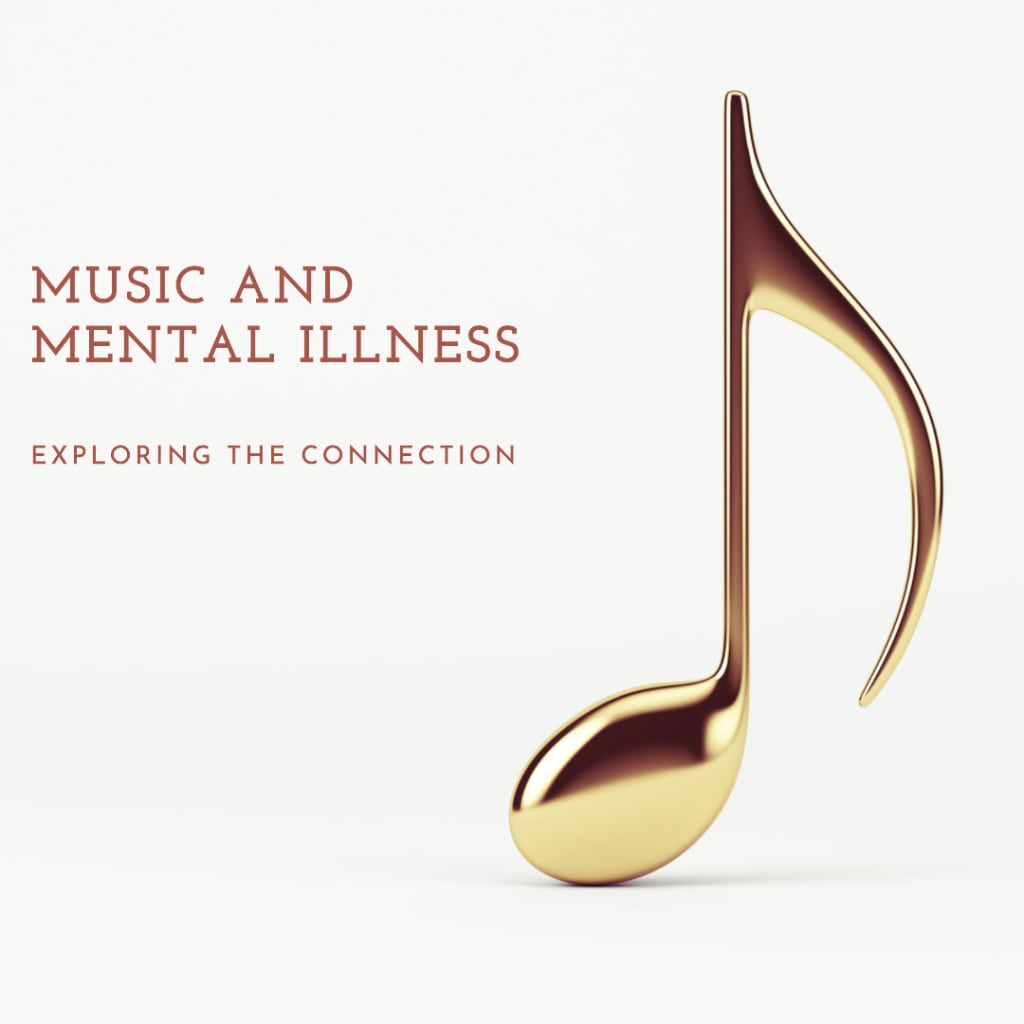The Healing Power of Music
How It Helps Those with Mental Illness

Music has always been a powerful tool for expression, communication, and connection. It has the ability to evoke emotions, memories, and feelings in ways that words alone cannot. For those with mental illness, music can be a particularly powerful tool for healing and self-expression. In this article, we will explore the relationship between mental illness and music and how it can help those who struggle with mental health issues.
Music as a Coping Mechanism
Many people with mental illness turn to music as a coping mechanism. Music can be a way to escape from negative thoughts and emotions and can provide a sense of comfort and solace during difficult times. Listening to music that resonates with your own experiences can be particularly helpful for those with mental illness. It can help them feel understood, validated, and less alone in their struggles.
Music as a Source of Inspiration
For some people with mental illness, music can be a source of inspiration and motivation. Hearing lyrics that speak to their own experiences can help them feel empowered, and the rhythm and melody of a song can help them feel energized and motivated to take action towards their own recovery.
Music as Therapy
Music therapy is a recognized form of treatment for mental illness. It involves using music to address the physical, emotional, cognitive, and social needs of individuals with mental health issues. Music therapy can be used to improve mood, reduce anxiety and stress, and promote relaxation and emotional regulation. It can also be used to improve communication, enhance social skills, and facilitate self-expression.
Music therapy can take many forms, including listening to music, creating music, singing, and playing instruments. A trained music therapist can work with individuals to create a personalized treatment plan that addresses their unique needs and goals.
The Science Behind Music and Mental Health
There is growing evidence to suggest that music has a real, measurable impact on the brain and can be used to treat a variety of mental health conditions. Studies have shown that listening to music can increase the release of dopamine, a neurotransmitter that is associated with pleasure and reward. It can also reduce the release of cortisol, a hormone that is associated with stress.
Music has also been shown to activate areas of the brain that are involved in emotional processing, memory, and attention. This can be particularly helpful for those with mental illness, as it can improve their ability to regulate their emotions, process traumatic experiences, and stay focused on the present moment.
Conclusion
The relationship between mental illness and music is a complex and multi-faceted one. For some people, music is a coping mechanism that provides comfort and solace during difficult times. For others, it is a source of inspiration and motivation. And for many, it is a form of therapy that can help them address the physical, emotional, and social needs associated with mental health issues.
Whether it's through listening to music, creating music, or participating in music therapy, there is no doubt that music has a powerful impact on those who struggle with mental illness. By harnessing the healing power of music, individuals with mental illness can find comfort, inspiration, and hope on their journey towards recovery.
If you or someone you know is struggling with mental illness, consider exploring the benefits of music therapy or incorporating music into your daily self-care routine. Here are some tips to get started:
1- Create a playlist of songs that resonate with your own experiences and emotions. Use this playlist as a tool for self-expression, comfort, and motivation.
2- Attend a live music event, such as a concert or music festival. Being surrounded by the energy and emotion of live music can be a powerful experience.
3- Consider working with a music therapist to develop a personalized treatment plan that addresses your unique needs and goals.
4- Learn to play a musical instrument or take singing lessons. The act of creating music can be a form of self-expression and can help you tap into your emotions and creativity.
5- Practice mindfulness meditation while listening to music. Focus on the sound and vibration of the music, and let it guide you towards a state of relaxation and inner peace.
Remember, music can be a powerful tool for healing and self-expression. By incorporating music into your life, you can find comfort, inspiration, and hope on your journey towards mental wellness.
It's important to note that while music can be a helpful tool for those with mental illness, it is not a substitute for professional treatment. If you or someone you know is struggling with mental health issues, it's important to seek the help of a qualified mental health professional. A mental health professional can work with you to develop a comprehensive treatment plan that addresses your unique needs and goals.
In conclusion, the relationship between mental illness and music is a complex and multi-faceted one. Music can be a source of comfort, inspiration, and healing for those with mental illness. Whether it's through listening to music, creating music, or participating in music therapy, there are many ways to harness the healing power of music. By incorporating music into your life, you can find hope, comfort, and inspiration on your journey towards mental wellness.
The healing power of music is truly a remarkable thing. By incorporating music into our lives, we can find joy, comfort, and hope in even the most difficult of times.
So, let's celebrate the joy that music can bring! Whether it's dancing to your favorite song, singing at the top of your lungs, or simply enjoying the sound of a beautiful melody, take a moment to appreciate the gift of music in your life.
Remember, there is always hope, and music can be a powerful tool for healing and self-expression. By incorporating music into our lives, we can find a renewed sense of joy and happiness. So turn up the music, let yourself be swept away by the rhythm, and dance your way towards a brighter tomorrow!
About the Creator
Enjoyed the story? Support the Creator.
Subscribe for free to receive all their stories in your feed. You could also pledge your support or give them a one-off tip, letting them know you appreciate their work.






Comments
There are no comments for this story
Be the first to respond and start the conversation.